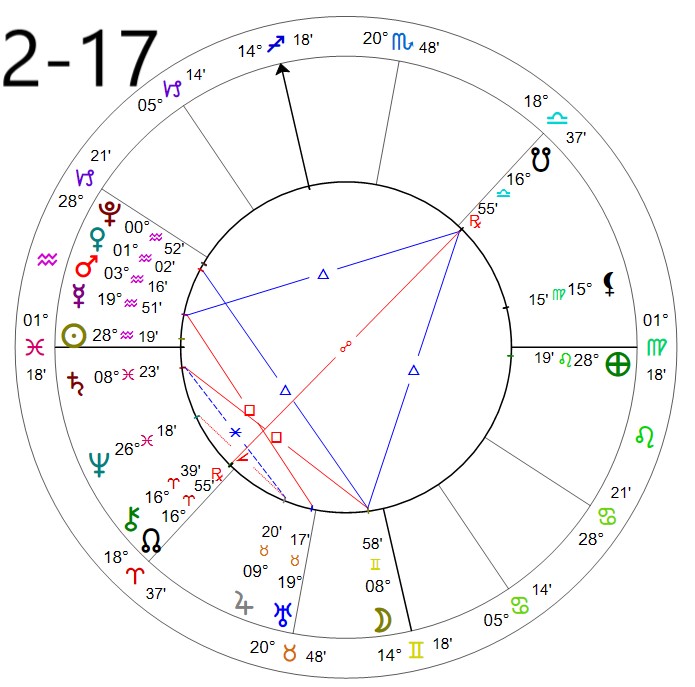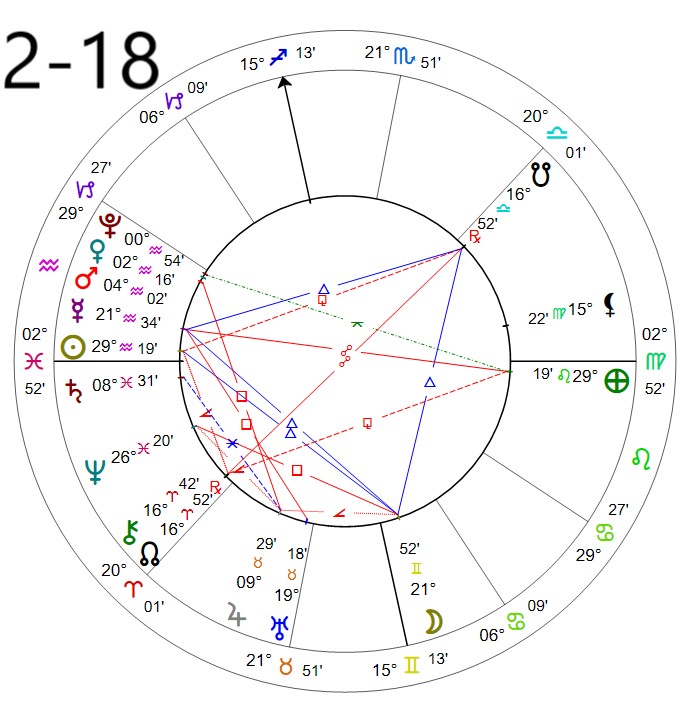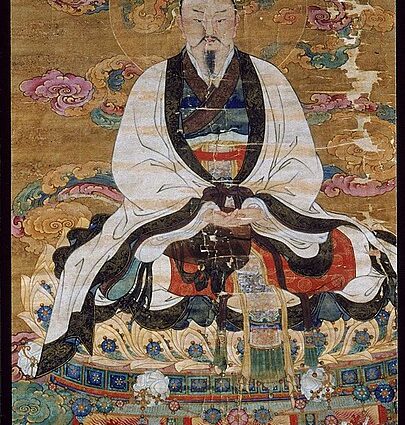Saturday – Sunday February 17-18, 2024
– First Quarter Moon Phase – step out, take action, breaking away, expression

– Moon in GEMINI – Void of Course 2/1810:21 AM – 10:25 PM Moving to Cancer
– Best Days (from the Farmer’s Almanac) – February 18th – – Set Eggs, Get Married, Mow to Increase Growth, Dig Holes, Cut Firewood, Wax Floors, Start Diet to Gain Weight, Cut Hair to Increase Growth, Bake
– Planting Calendar (from the Farmer’s Almanac) –
February 16th – 17th Any seed planted now will tend to rot.
February 18th – 20th Plant seedbeds and flower gardens. Fine for planting beans, tomatoes, corn, cotton, cucumbers, peppers, melons, and other aboveground crops where climate allows.
– Aspect of the Aeon Sophia: (Wisdom): – Kali – The Destroyer
– Aspect of the Aeon Thelete: (Will/Desire): Seth , God of the North
– Sabian Symbol for the Solar-Lunar Month – New Moon in Aquarius SUN/MOON – SUN/MOON – 21 AQUARIUS: a woman, disappointed and disillusioned, courageously facing a seemingly empty life (EARTH – 21 LEO: intoxicated chickens dizzily flap their wings tying to fly )
SUN –
29 AQUARIUS: a butterfly emerging from a chrysalis
30 AQUARIUS: moonlit fields, once Babylon, are blooming white
EARTH –
29 LEO: a mermaid emerges from the ocean ready for rebirth in human form
30 LEO: an unsealed letter

More on the Chinese New Year Celebrations
COPIED WORD FOR WORD FROM WIKIPEDIA – omitting the footnotes
Eighth day
Another family dinner is held to celebrate the eve of the birth of the Jade Emperor, the ruler of heaven. People normally return to work by the eighth day, therefore the Store owners will host a lunch/dinner with their employees, thanking their employees for the work they have done for the whole year.
Ninth day
The ninth day is traditionally known as the birthday of the Jade Emperor of Heaven (Chinese: 玉皇; pinyin: Yù Huáng) and many people offered prayer in the Taoist Pantheon as thanks or gratitude. It is commonly known as called Ti Kong Dan (Chinese: 天公誕; Pe̍h-ōe-jī: Thiⁿ-kong Tan), Ti Kong Si (Chinese: 天公生; Pe̍h-ōe-jī: Thiⁿ-kong Siⁿ/Thiⁿ-kong Seⁿ) or Pai Ti Kong (Chinese: 拜天公; Pe̍h-ōe-jī: Pài Thiⁿ-kong), and is especially important to Hokkiens.

A prominent requisite offering is sugarcane. Legends holds that the Hokkien were spared from a massacre by Japanese pirates by hiding in a sugarcane plantation between the eighth and ninth days of the Chinese New Year, coinciding with the Jade Emperor’s birthday. “Sugarcane” (Chinese: 甘蔗; Pe̍h-ōe-jī: kam-chià) is a near homonym to “thank you” (Chinese: 感謝; Pe̍h-ōe-jī: kám-siā) in the Hokkien dialect.
In the morning (traditionally anytime between midnight and 7 am), Taiwanese households set up an altar table with three layers: one top (containing offertories of six vegetables (Chinese: 六齋; pinyin: liù zhāi; those being noodles, fruits, cakes, tangyuan, vegetable bowls, and unripe betel), all decorated with paper lanterns) and two lower levels (five sacrifices and wines) to honour the deities below the Jade Emperor. The household then kneels three times and kowtows nine times to pay obeisance and wish him a long life.
Incense, tea, fruit, vegetarian food or roast pig, and gold paper, are served as a customary protocol for paying respect to an honoured person.
